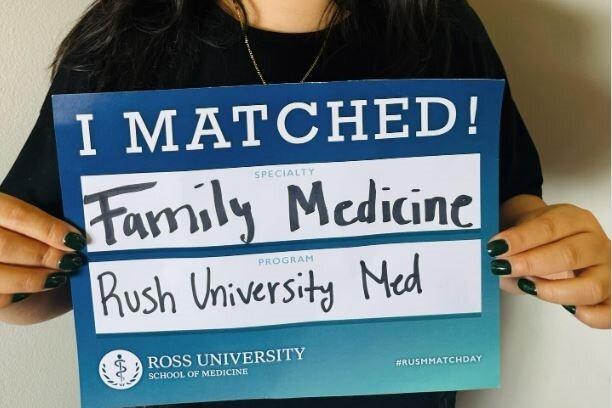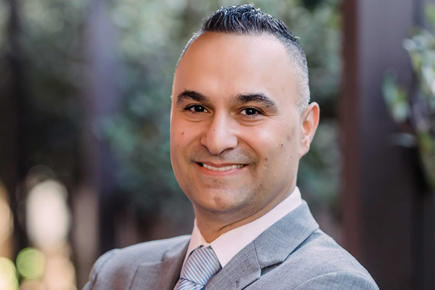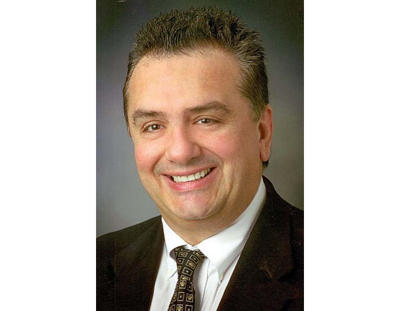One day during clinicals, he bumped into a neurologist who asked him to help out with a spinal tap. Intrigued by the specialty, Medvedovsky tried a four-week neurology elective and ended up loving it. Fast-forward nearly a decade and he’s completed a neurology residency at Virginia Commonwealth University, plus a fellowship in interventional pain management at the same university. Now, the Brooklyn native is practicing with the New Jersey-based RA Pain Services.
Read below for Medvedovsky’s thoughts on island life, clinicals, residency, and what it really means to be a doctor.
A QUOTE THAT HE LIVES BY: [My fellowship] was directed by an amazing, amazing physician who was my mentor—Dr. [Maged] Hamza—and he was a person that really shaped my career in a lot of ways. One of the things he would always tell me is “Look. If you don’t demand perfection from yourself, nobody else will.” And the fellowship was really intense and very heavy on academics, on procedures, on patient volume, and you had to be perfect. There was no room for error. And it was overwhelming, but I knew if I could get through the fellowship … it would be worth it and would pay off when I’m on my own.
ON CHOOSING ROSS AND PRECONCEPTIONS: I was very nervous about coming to Ross because the preconceived notion was that, if you go to a Caribbean medical school, you’ll have a really hard time getting a residency and other negative beliefs that people have about Caribbean students. So I realized when I came out of Ross and started my clerkships, and then residency, there’s a lot more to being a doctor than the medical school you graduate … once you’re out there in real-life settings, I think it’s your personality, your compassion, and your work ethic that really takes over and becomes the driving force for your success.
Looking back, I think that at this point in my career I’m lucky I went to Ross. It gave me amazing experience, and has only exposed me to a different culture that I wouldn’t have ever been able to be a part of.
ON HOW MUCH HE LOVED DOMINICA: You’re walking into a school that’s equipped like an American school, and it’s an amazing luxury to be able to SCUBA dive in the morning and go to class in the afternoon, to be able to walk down the beach and then go to [your] apartment, look out the window, and look at a banana tree farm and wild mangoes in the backyard … or wake up Saturday morning, go to the fresh market, and buy a piece of fish they just pulled out of the water. So it’s a phenomenal experience—it’s an experience that you really can't put a price on.
HIS MOST EYE-OPENING ISLAND EXPERIENCE: The one that really sticks out is our experience when we went to [country capital] Roseau to a local hospital to see real life in a Dominica clinic. And it’s unbelievable—the minimal resources that the physicians and patients have. It really puts things into perspective, and it really makes you adaptable to work in various situations and circumstances. Because when you see doctors in action in Dominica doing their best, taking care of patients with whatever they have, and then we come back to the United States where we see a fully equipped hospital, we realize “Wow, there is no reason not to be able to provide patients with the best care and service.”
SOME COMMENTS ON CLINICALS: I did my rotations mostly in New York. Clinical rotations, I think, are a little bit challenging. You’re working with residents, other physicians who are busy … [and when you’re] coming out of the basic sciences where you’re going to class and then going [back to housing], then being in the hospital sometimes up to 80 hours a week as a [clinical] student, it gets extremely tiring. But you get through it. I think being motivated is a big factor in making it a good experience.
A FEW WORDS ON RESIDENCY: I did my neurology residency at Virginia Commonwealth University in Richmond, which was a phenomenal experience. Obviously, neurology is a pretty competitive residency, but I felt comfortable applying for it. I had a genuine interest in it, I was very motivated, and I had very strong letters of recommendation because the neurologists that I worked with really believed in my interest and were willing to support me in my goals.
LIFE IN PRACTICE: My current position is very unique. I’m a physician with a private practice called RA Pain Services. I see patients in the office relating to various head, neck, [and] spine [conditions] and chronic pain. On Mondays, I’m in the hospital doing everything from basic epidural injections, nerve ablations, and spinal cord stimulators to really involved, unique cases. One other thing I do, which I think is pretty unique, is direct a medical marijuana program. So it’s been incredibly interesting to incorporate all of these different things into my practice. I never, ever imagined myself doing any of this stuff.
Editor’s note: Philly.com interviewed both Medvedovsky and one of his patients about his work with medical marijuana.
HOW THINGS TURNED OUT: I’m amazed with my life. I feel extremely fortunate. I’m amazed at the people that I meet and the ability to affect people’s lives. It’s phenomenal and I thank Ross University and my mentors along the way who have given me the opportunity, and who believed in me.



